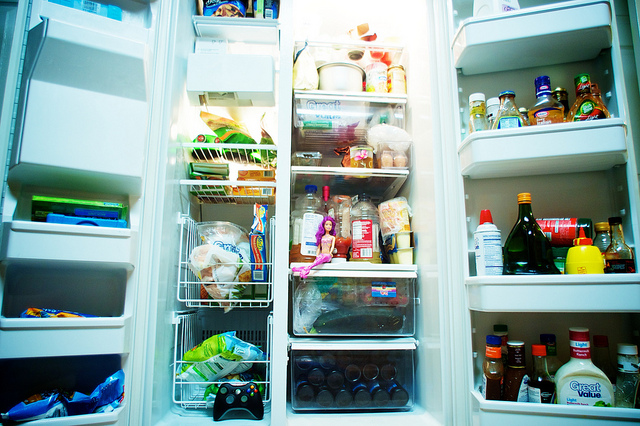Question of the Day: What Does a Roommate's Bad Habit Say About the Economics of Jealousy?
I have long been interested in the effects — psychological, economic, and otherwise — of jealousy (and, relatedly, disgust and repugnance). Even using the word “jealousy” is probably loaded. (Maybe “resentment” is better? Doubtful.) In any case: somewhere between the 99% movement and the Mitt Romney-as-private-equity-bloodsucker meme lies a discussion that includes a lot of legitimate questions about fairness and a lot of less-legitimate emotional reaction that gets turned into political and intellectual fodder.
That’s what came to mind when this very interesting e-mail arrived the other day, from a reader named Lauren:
I’m a law student at the University of Maryland, and I have a question I’m hoping you can answer. Basically, the issue is this: I’m 37, back in school after years in the working world; and for the first time in ages, I’m living with a roommate. And she wastes food . . . and it’s driving me crazy. I’m not talking about just throwing out leftovers: she goes to the market once a week or so, buys a ton of expensive food, puts it in the fridge/cabinet, then eats out all the time and never touches it. Then, when it’s all gone bad, she dumps it all in the trash (often unopened) – and repeats the process.
I am finding this beyond maddening. And I can’t deny that much of my bitterness comes from the fact that she is 23 and clearly has money (her parents’) to burn; and . . . well, I’m poor and jealous. But beyond that, it’s painful to see so much perfectly good food going to waste when Baltimore is full of people who are going hungry.
Still, I haven’t figured out a way to point this out without being antagonistic or grumpy about it. And I really just want to get through the next semester in relative harmony. I would rescue the food from the trash and donate it to a food bank, but she waits until it really is all inedible before throwing it out. And again, I don’t want to cause antipathy by taking it while it’s still salvageable.
So, all this is to ask: is it even remotely possible to make myself feel better by reasoning that at least she is supporting the economy; and that by increasing demand for food she is helping to finance innovations in food production that will ultimately help get food to people who really need it? Or, is that complete self-deception?
What advice do you have for Lauren?


Comments